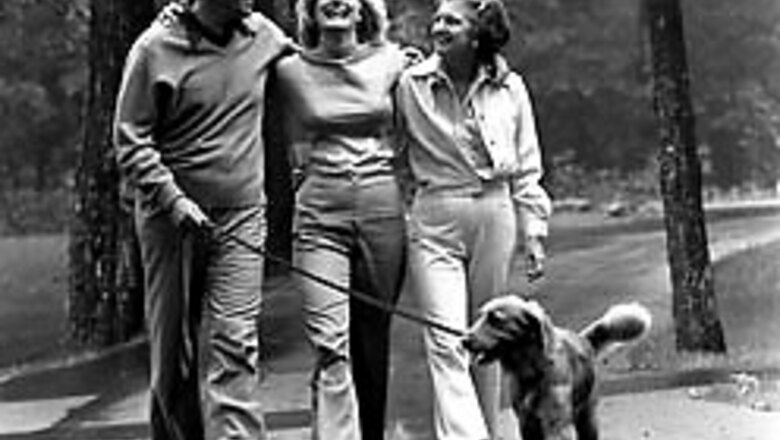
views
New York: Man's best friend may also help keep their elderly owners healthy, but only if the dog owners regularly walk their pets, new research shows.
''Dog ownership, per se, does not equate to better health- walking the dog appears to facilitate health benefits,'' study co-author Dr Roland Thorpe of the Johns Hopkins Bayview Care Center in Baltimore said.
''Dog owners who actually walk their dog are more likely to meet the US Surgeon General's recommendation for physical activity, have a quicker walking pace and exhibit better fitness,'' he reported.
Previous studies have found that older adults who own pets engage in more physical activity and have less disability than seniors who do not own pets.
One study found that dog owners, for example, were not only more likely to walk, but were also likely to walk farther and more often than did study participants who did not have any pets.
Whether the increased walking among pet owners protected them against a loss of mobility is not known.
However, in the current study of 2,533 seniors, aged 71 to 82 years, Thorpe and his colleagues compared walking behavior among dog owners and those who didn't own a dog, all of whom had no difficulty walking a quarter of a mile or climbing 10 steps without resting.
Overall, 394 of the study participants reported owning a dog, but less than half (36 percent) said they regularly walked their dogs three or more times a week, the researchers report in the Journal of the American Geriatrics Society.
Seniors who did walk their dogs were more likely to walk 150 minutes per week, however, which is considered ''sufficient'' walking behavior, according to the US Surgeon General's report on Physical Activity and Health.
These seniors' walking speeds were also faster than their counterparts who did not own dogs or walk three or more times a week.
Faster walking speeds were also observed among seniors who walked 150 minutes or more each week but did not own dogs, the researchers note.
At follow up, three years later, seniors who initially reported regularly walking their dogs were almost twice as likely as other seniors to continue to walk the recommended 150 minutes or more each week.
All of the seniors experienced a decline in their walking speeds over the study period, yet the decline among those who walked regularly- whether or not they owned a dog- was not as great as that reported among seniors who did not walk regularly.
Thus, ''the mobility advantages associated with dog walking were no greater than those associated with walking in general,'' the authors write.
Still, in light of the overall findings, Thorpe offered the following advice to seniors who own dogs: ‘‘enjoy a nice walk with your dog on a regular basis.''




















Comments
0 comment